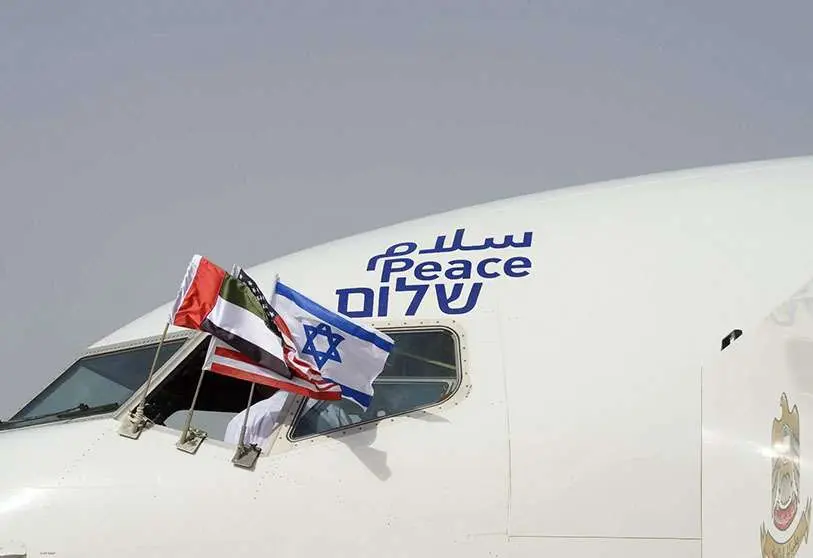Eliav Benjamin: "The agreement between the Emirates and Israel will mainly benefit the countries of the region"

"The society of the United Arab Emirates and Israel is the one that benefits most from the agreement on the normalisation of relations signed between the two nations". These were the words used by Eliav Benjamin, director of the Coordination Department of the Israeli Ministry of Foreign Affairs, during the presentation of the report "Israel and the United Arab Emirates. Implications of the developing agreement and how to make the most of its potential".
This document has been presented at the same time as Saudi Arabia announced this Wednesday the opening of its air space to flights in and out of the United Arab Emirates from all countries, including Israel, which this Monday made the first commercial flight to Abu Dhabi. The flight numbers are a wink to the respective country call signs: +971 for the UAE and +972 for Israel, as explained by Eliav Benjamin.
This agreement - said the director of the Coordination Department of the Israeli Foreign Ministry - is the result of many years of work. The first commercial flight between the two nations is only the beginning of the formalisation of these diplomatic relations, which have been centred on seven working groups that range from matters related to diplomacy to economic issues and others such as investments, visas and cooperation in health and space matters.
"This agreement will benefit the people of both countries", said Eliav Benjamin, who stressed that this pact "will give more stability to the region and even to the world". During his speech he stressed that since 1994 there had been no agreement with another country. With the announcement on 13 August, the Gulf country has become the third Arab country to have relations with Israel, in addition to Egypt and Jordan. Since then, progress has been fairly rapid. Among the latest measures adopted to formalise diplomatic relations is the repeal by the Emirates this Saturday of a federal law boycotting Israel, which established sanctions for anyone doing business with this country. This event was applauded by Eliav Benjamin, who said that the abolishment of this law would favour progress in the normalisation of diplomatic relations.
The director of the coordination department of the Israeli foreign ministry has also invited other countries in the region to follow the example of the Emirates. "We believe that other countries in the region will benefit from these relations. We are inviting other Arab countries to follow the example of the Emirates," he said. He also thanked the Trump Administration for being part of this great historical agreement.

The President of the United States, Donald Trump, the Israeli Prime Minister Benjamin Netanyahu and the Emirate Sheikh Mohamed bin Zayed al-Nahyan, Crown Prince of Abu Dhabi, agreed on 13 August to fully normalise relations between Israel and the United Arab Emirates. "This historic diplomatic breakthrough will promote peace in the Middle East region [...] The three countries face many common challenges and will benefit mutually from today's historic achievement". These were the words used in the joint communiqué issued after making effective this pact that has transformed the political future of the region.
The talks we had in Abu Dhabi this week took place in a relaxed and friendly atmosphere, according to Eliav Benjamin. During the presentation of this report, he stressed the importance of cooperation agreements in health and research, with a view to tackling the COVID-19 pandemic. "We have a lot in common and we need to continue learning from each other. We have much in common and we need to continue learning from each other. People welcomed us with open arms during our visit," he said. "People will be able to understand, learn and connect with other cultures thanks to this pact," he reported.
This presentation took place just one day after the Israeli delegation, led by National Security Advisor Meir Ben Shabat, arrived in Abu Dhabi along with senior US officials to strengthen cooperation in areas such as investment and tourism, among others.








